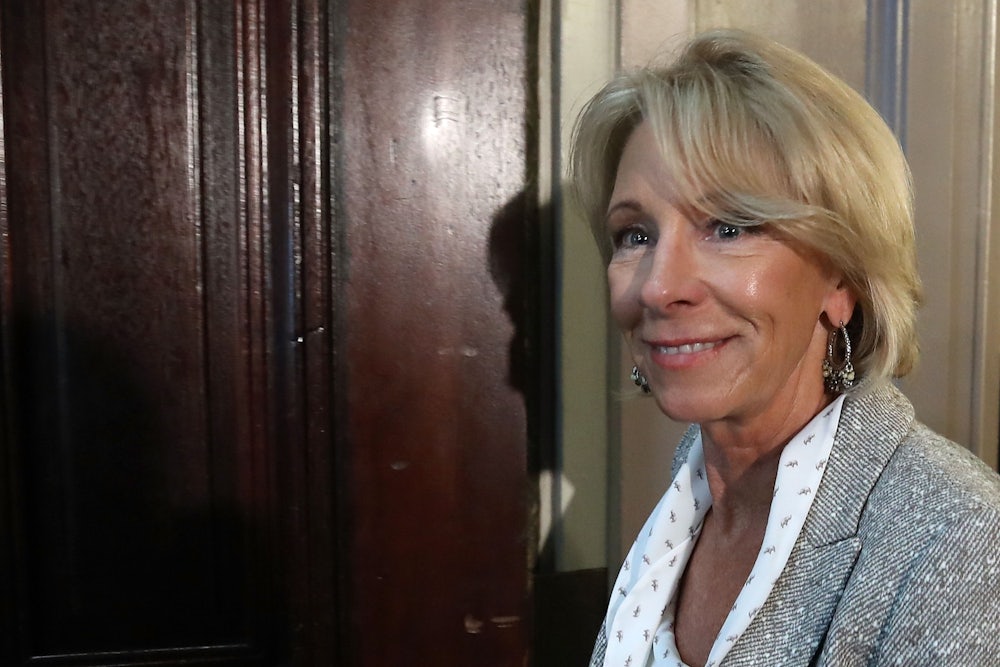The New York Times reported on Wednesday afternoon that the Education Department secretary is revising Title IX standards for addressing cases of sexual harassment and assault on college campuses. DeVos has yet to finalize the revisions, but a draft obtained by Times will “bolster the rights” of accused students, “narrow the definition of sexual harassment,” and hold “schools accountable only for formal complaints filed through proper authorities and for conduct said to have occurred on their campuses.” The draft rule states:
The Department recognizes that despite well-intentioned efforts by school districts, colleges and universities, advocacy organizations and the Department itself, sexual harassment and assault continue to present serious problems across the nation’s campuses. The lack of clear regulatory standards has contributed to processes that have not been fair to all parties involved, that have lacked appropriate procedural protections, and that have undermined confidence in the reliability of the outcomes of investigations of sexual harassment allegations.
Even the most ardent feminists would acknowledge that Title IX is an imperfect tool to combat a rampant problem. But there’s evidence that DeVos isn’t operating in good faith. She chose Candice Jackson to head the department’s Office for Civil Rights, which investigates Title IX complaints; Jackson once asserted to the Times that “90 percent” of assault complaints “fall into the category of ‘we were both drunk,’ ‘we broke up, and six months later I found myself under a Title IX investigation because she just decided that our last sleeping together was not quite right.”
In 2017, DeVos also reached out to several men’s rights groups to discuss the issue of rape on campus. The secretary met with members of Families Advocating for Campus Equality and Stop Abusive and Violent Environments, which advocate for students accused of sexual misconduct, and the National Coalition for Men, which refers to itself as “the oldest Men’s Rights organization in America.” The latter group recently filed its own Title IX complaint against the University of Pennsylvania because the school has “over 20 women programs ... but nothing similar for men.”
